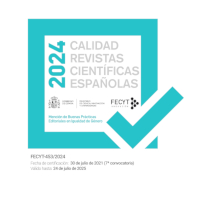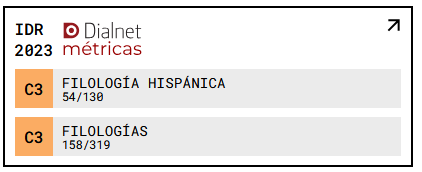The politics of discourse in Thomas More's "Utopia"
DOI:
https://doi.org/10.18172/cif.2220Resumen
Besides being the cornerstone of modern utopian fiction, Thomas More’s Utopia provides a paradigmatic example of a doctrinal text and a serio ludere in which questions related to the use of narrators (e.g., who speaks and for whom; on which diegetic level each speaker exists) are as important as the content of the doctrines being expounded. As happens in other towering works of the Renaissance (such as Miguel de Cervantes’s Don Quixote or Anne Bradstreet’s The Tenth Muse), the main text appears buried underneath a thick layer of epistles, poems, dedications, and recantations. The principal function of these paratexts is to give a satirical dimension to the description of the kingdom of Utopia. Just as important, the silencing of Utopia’s history reinforces the hypothesis that in More’s fiction, Raphael Hythlodaeus’s narrative works toward legitimating the fragile Tudor regime, with which it is ironically contrasted.Descargas
Descargas
Publicado
Cómo citar
Número
Sección
Licencia
El autor o autora conserva todos los derechos sobre su artículo y cede a la revista el derecho de la primera publicación, no siendo necesaria la autorización de la revista para su difusión una vez publicado. Una vez publicada la versión del editor el autor está obligado a hacer referencia a ella en las versiones archivadas en los repositorios personales o institucionales.
El artículo se publicará con una licencia Creative Commons de Atribución, que permite a terceros utilizar lo publicado siempre que se mencione la autoría del trabajo y la primera publicación en esta revista.
Se recomienda a los autores/as el archivo de la versión de editor en repositorios institucionales.














